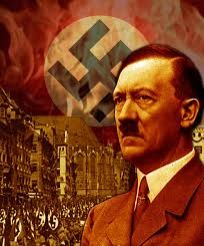Hitler Appreciation Society: German Town Refuses to Revoke Fuhrer's Honorary Citizenship

A German town has refused to revoke the honorary citizenship it awarded to Adolf Hitler in 1933.
Eight councillors of the small town of Dietramszell, Bavaria voted against the move.
"It would be a distortion of history," said Traudi Frost, one of the council members.
The result of the motion was perceived by many as a sneaking admiration for Hitler, 68 years after his death in Berlin.
Hitler gained power when he legitimately became Chancellor in 1933.
However, as leader of the Nazi party, Hitler's utopian vision for Germany led to the creation of a sinister network of concentration and extermination camps.
He presided over the extermination of about 6 million Jews as well as hundreds of thousands of Poles, Ukrainians, Russians, political opponents and homosexuals, during the Second World War.
Peter Dathe, the head of the local criminal court, said the town council should have sent a clear message condemning Hitler, given the rise of neo-Nazi violence throughout Germany.
Germany has recently agreed to revisit more than 700 crimes committed in the country between 1990 and 2011, for possible connections to far-right extremist groups.
The author and journalist David Crossland said: "Even though most Germans don't feel threatened by this problem, it is a very real physical threat. And in the long-term it is a threat to Germany's reputation as a civilised democracy."
The author of The Jewish Candidate continued: "I think the main reason is that most Germans don't feel threatened by it."
"Germany has done so much to atone for the Holocaust and for the crimes of the Third Reich. I think there's a general sense of 'We've done enough.'
"There's also a desire to just ignore the problem and not to acknowledge its existence because it's such an unpleasant phenomenon."
© Copyright IBTimes 2025. All rights reserved.




















